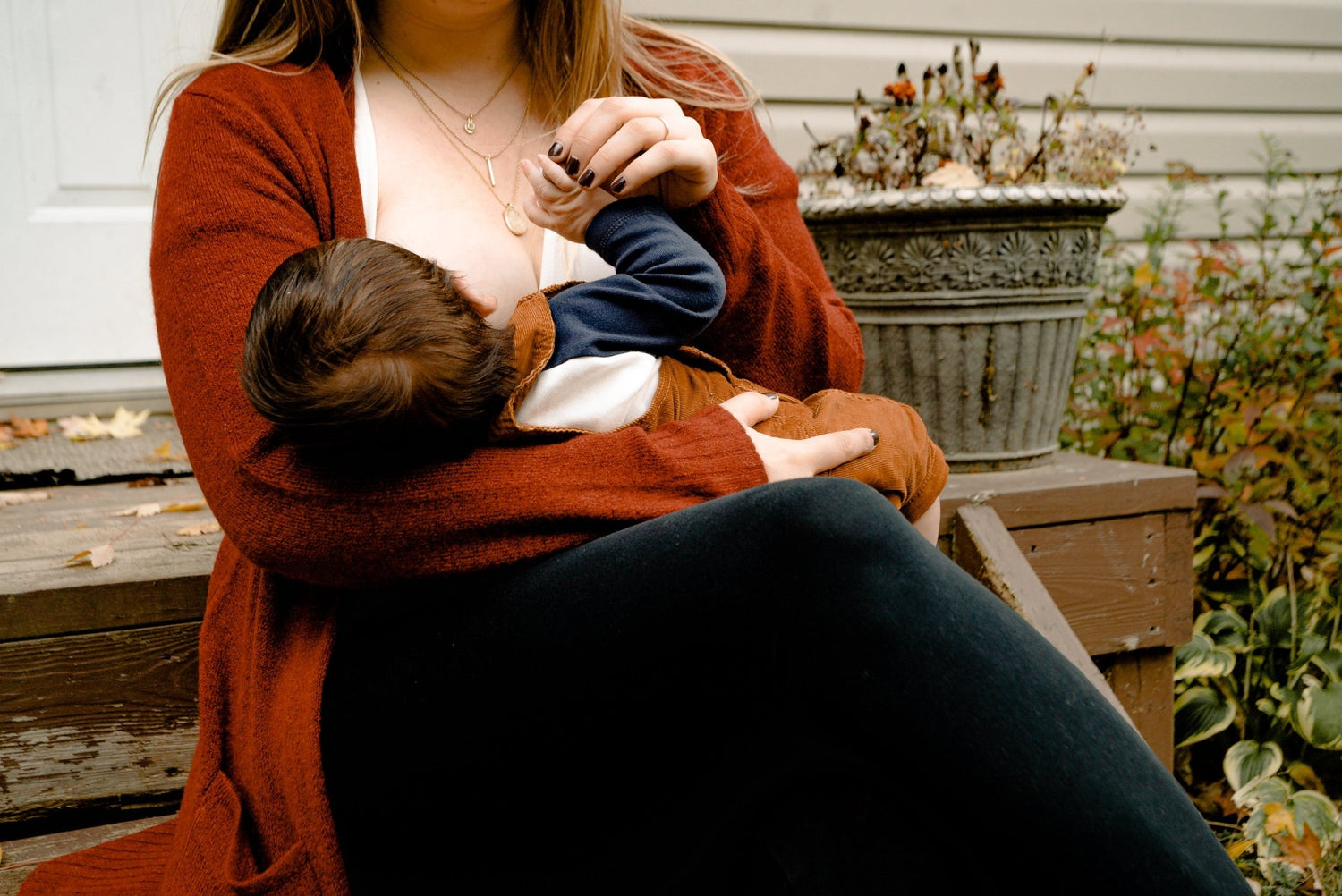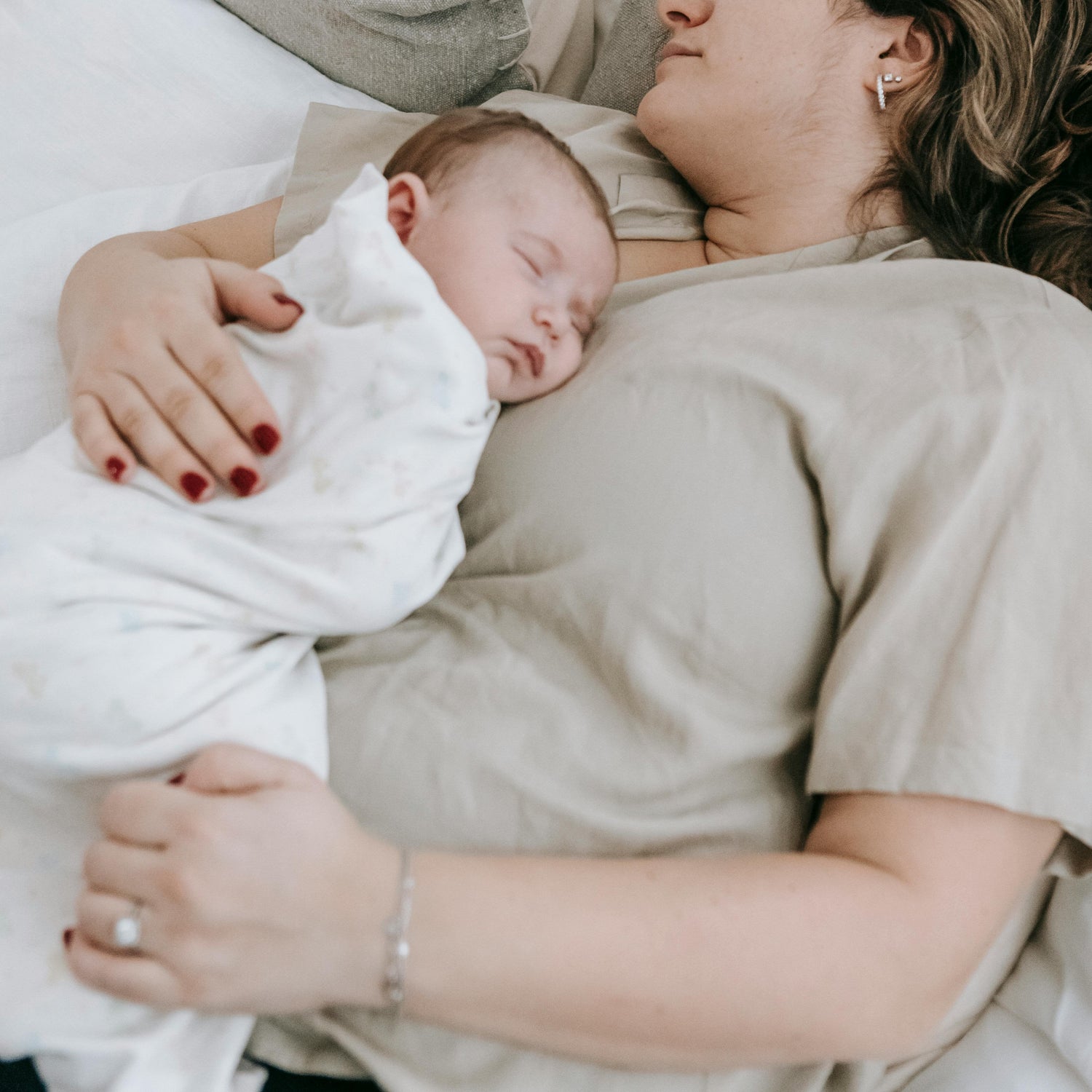Routine and rituals for babys
Newborn babies are born into a world they are not familiar with. In order to give them some kind of support, it is recommended to build in constant rituals into one's daily routine. Children can assess what will happen next and prepare accordingly. Many infants do not cope well with new situations and show this by crying, and these children often have trouble resting and falling asleep because they cannot process the events of the day so easily. Especially with such children, it is important in the first few weeks and months to keep their daily routine as consistent as possible.
|
Table of contents:
|
1. Background and challenges
 In order to ensure a good night's sleep, this means that there should not only be an evening routine, but the entire day should be designed accordingly. So what needs to be considered?
In order to ensure a good night's sleep, this means that there should not only be an evening routine, but the entire day should be designed accordingly. So what needs to be considered?

In general, there are very sensitive babies who react to the smallest changes in their daily routine by crying, especially in the evening. With other babies, on the other hand, you can do whatever you want without noticing a change in the child's behavior. So the first challenge is to find out to what extent your baby reacts to unplanned events in the course of the day.
The second challenge will be how to balance your own needs with those of your child. Your own needs should not be completely neglected, because that would make you unhappy, which could also have a negative effect on the child.
However, many parents themselves swear by a fixed daily routine because it makes life with a child easier. We adults can also deal with situations better when we know what is in store for us, and it is the same with our children. Babies love habits, so when certain actions happen in the same order and at the same time, it gives babies security.
2. The right time
Opinions differ on the right time to start a fixed daily routine. While some start right after birth, others start six months later or later or not at all. Many experts advise starting with a fixed daily routine in the second to fourth month of life. However, this should be decided individually for yourself.
After a certain time, eating, sleeping and waking phases will often become recognizable so that you can adjust your daily routine accordingly. Due to the rapid development of children, it is important that you constantly have to change and adapt your routine in small steps, as the sleep phases are becoming shorter and the children are becoming more and more active, and the meal times are also becoming more and more regular.
3. Methods
A fixed daily routine can be specified by the parents, but also by the child or a mix of the needs of parents and child. 
3.1. Daily routine according to the child's specifications
The parents adapt to the needs of the child. This method is about analyzing and decoding the child's signals. For example, yawning and rubbing your eyes indicate tiredness. The needs of the parents are largely neglected. However, this does not usually mean that the daily routine is unpredictable and unplannable, since a rhythm often emerges.
3.2. Daily routine according to the parents' specifications
With this method, the parents specify what the daily routine should look like. It is determined, sometimes down to the minute, when (and sometimes how much) to eat, when (and for how long) to sleep and when and for how long certain activities, such as walks, are carried out. There are only very limited deviations and breaking out of the routine is usually not planned.
3.3. Mix of both methods
Both the needs of the child and the needs of the parents find their importance. Daily routines are planned, but breaking out of the routine is also considered. Lunch, for example, is always timed for 12 p.m., but the child is not hungry at that time, it is fed later. You remain flexible in your fixed daily routine.
4. Without constraints
Fixed daily routine or not. If the baby has been tired at 1 p.m. every afternoon and has been for weeks or months and you have always put it to sleep then, only today it does not fall asleep at this time, then not. When babies are having a growth spurt or are ailing and are sleeping more or breastfeeding more often than usual, that's just the way it is. The fixed daily routine should be a support, but the acute needs of the child are always in the foreground. The most important thing of all and in all areas when it comes to your own children is gut feeling. So follow your instincts and don't let external influences steer you too much.
5. The evening routine

For a particularly good baby sleep, the last point of the day is of course the most important - the bedtime ritual. As already mentioned, fixed rituals make children feel safe. This security is therefore evoked again through an evening routine, the child feels comfortable and secure and can relax and calm down better. The more secure it feels, the greater the likelihood that falling asleep will go smoothly.
Everyone can decide for themselves how such a ritual can look like. It is only important that it remains constant in its course. There are elements that usually always occur, such as putting on your pajamas/sleeping bag, brushing your teeth and changing diapers. Other elements of a ritual can be: bathing, playing, telling stories, cuddling, reading aloud, singing, light show, radio play, goodnight kiss, bottle/breastfeeding or the pacifier. So everyone can put together their own individual evening routine.
6. So much for the theory
Leon and I didn't really have a fixed daily routine, just an evening routine. Although I was aware that a fixed daily routine should be important for better sleep, I still never really got it right, even though I tried. Unfortunately, for me, I wanted to try something new every day, which of course was very counterproductive in order to convey security towards Leon. I've tried different tips and tricks for better sleep so many times, for a few days at a time, that it's never really settled into a routine. Maybe that was exactly my mistake, why Leon was such a bad sleeper and generally very restless.
In general, I believe that such a fixed daily routine can help restless children, but maybe – not like me – you should give up after a few days and try new things again. Sometimes there were days and weeks in which I only lived according to Leon's needs, so that I didn't even do anything anymore, but was just fixated on analyzing his signals and reacting as quickly as possible before he became whiny for hours again, because that's what happened when I didn't do the right thing right away. But there were also (very few) days when I thought I couldn't live like this and only put my needs on the back burner. On days like that, I went with Leon to friends or invited friends, which was mostly a disaster. Unfortunately, I had to realize that in the first eight months, which were bad and exhausting for me, I had already very much followed Leon's needs. At that time, Leon totally determined my life. The only way for me to break out of this situation was to leave Leon with his dad and then I did something on my own, so I could at least still attend to my needs a bit while at the same time Leon's needs were not restricted.
The only ritual – also determined by me – that we implemented from day one was the bedtime ritual. I implemented this according to my specifications and this has always been steadfastly enforced, until today. At this point of the day I was and still am strict. Bedtimes are always the same and that's when we sleep. However, I have to say that Leon is always tired, but probably because it has always been like that and he can adapt to it. If he didn't want to sleep at all, I would probably give in too 😉




